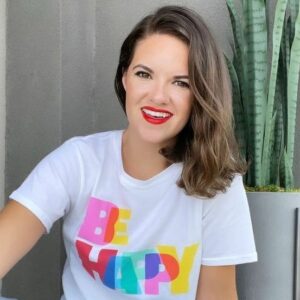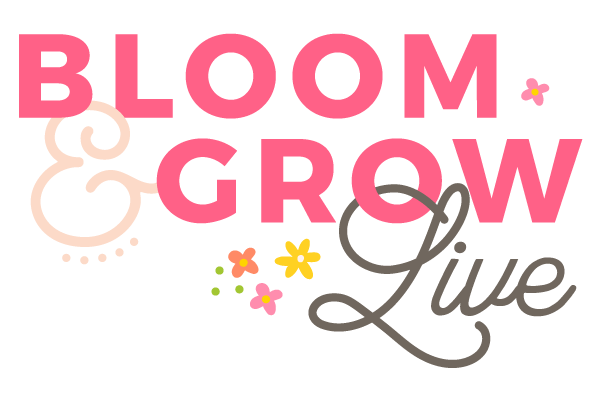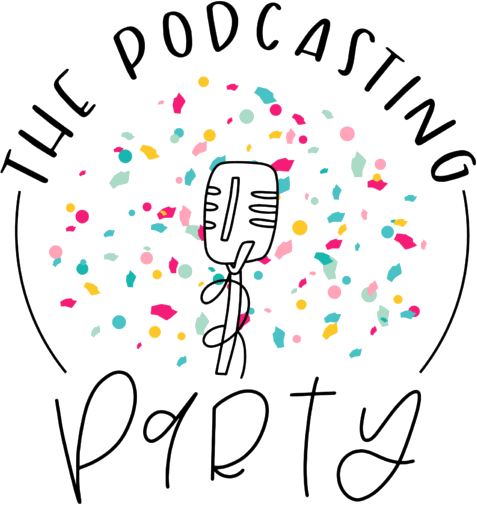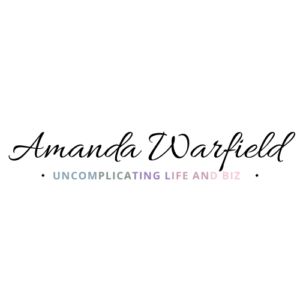











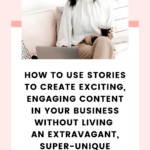


Stories are a powerful way to connect with your audience. They help you build relationships, they make you more memorable, and when you’re really clear on YOUR story it’s easier to talk about your business and communicate how you serve others.
But what is the cost of using your own life as an idea bank for stories for your business? Is it possible to communicate effectively without giving up your privacy?
On this episode of the Build it Like a Business podcast I’m talking to Molly Hudson to answer this question and more to help you communicate more effectively and build lasting relationships with your audience without sacrificing your privacy or totally bearing your soul!
Prefer to read the blog?
Episode Transcript
031. How to Share Your Story Without Sacrificing Your Privacy with Molly Hudson
0:05
You might be in business for yourself, but you don't have to be by yourself. My name is Kelly Lauer Minh and I'm here to help you stand out in a crowded market. Work smarter, not harder, and build a profitable business that lasts a lifetime. Whether you're feeling a little in over your head stuck on the same old way of doing things that you happen for years, or you have a to do list a mile long and just don't know where to start, you're in the right place. Marketing Strategy, getting leads money management, growing your team, to build it like a business podcast is your one stop shop for everything you need to ditch the side hustle mindset and truly build it like a business. Let's dive in. Hey, Molly, thank you so much for joining me here as a guest on the building like a business podcast. I'm so excited to have you here with me today. Thank you so much for having me. I'm excited to be here. It's gonna be fun. Yeah, absolutely. So I would love if we could just start off by having you introduce yourself to my audience. Just share a little bit about who you are and what you do. Sure. So
1:17
my name is Molly Hudson, most people online know me as determined Molly. But I have been in journalism and communications for almost 15 years now. And for the past few years, I've been teaching Instagram marketing, but now I've pivoted back because I feel like on Instagram, what we're constantly hearing is, you know, you hear the big business coaches say, well just tell your story and get in front of your audience. And it all starts to take off. But what is your story? Where's the audience? How do you get in front of them? And what do you say? And so that's what I am here to help you guys with, I help women figure out exactly how to communicate their story, their message and their offers, and also to find the audiences to get in front of because if you have all that figured out, you need someone to say it to.
1:59
Yeah, absolutely. And you just segwayed into the first question that I know. Everybody is wanting a little clarity on what in the world do you mean, when you say telling your story and using story in business in general? Like what is that.
2:13
So I think a lot of times, we get a little overwhelmed. And we think when someone says tell your story that they mean tell the deepest, darkest secret you have or like the most vulnerable thing that's ever happened to you and most painful experience you've ever been through or that one thing that just completely changed your life. And while that's certainly a story that you can tell, and that I feel like you will tell in the beginning, that's not the one we're going for. So don't let that fear scare you. In the beginning, when you're first meeting a new potential customer, or client, all you really need to tell them is who you are, what you do, how you can help them. It's really simple. And then the more that they get to know you with every interaction, they get to know more about you and your you'll share more and more. But when you're first meeting somebody, you just need to give them the basics. Don't scare them off with the scary stuff. We'll ease our way into it.
2:59
I think people care a little more about what you can do for them to then like every detail of your life. So I feel like if you brain dump on them, your deepest, darkest secret secret, the second they meet you, they're gonna be like, I don't even know why I'm meeting you. Like why are we together right now?
3:17
Yeah, yes, I compare it to when you go on a first date with a guy who sits across the table from you. And all he does is talk about himself for 90 minutes. And then two days later, he's like, hey, so I think you know, I didn't really get to know anything about you. And you're like, yeah, cuz you never shut up about you and ask me any questions. Don't be that guy. When you're, you're going to be telling your story on the daily basis, but always remember that probably 80% of it is connecting it back to your audience 20% of that message is about you. The rest of it is about how you can help the person in front of you with that situation that you've been through.
3:52
Okay, this is so interesting. So let's go kind of deeper into that about why story is so important for communicating not just about yourself, not just talking about yourself, but communicating what you can do for other people.
4:08
Yeah, so story The reason that you want to tell stories because people just remember stories, they're not going to remember stats you give them or prices you give them I mean sure they're gonna remember prices we all care about prices but you know if you can deliver how you can help them in a way that they're going to remember that's just going to stick with them more they're not going to remember stats they're not going to remember what you're wearing. They're going to remember this funny story you told them or success story of a client you told them or you know, whatever the story is they're going to remember parts of that story versus the nitty gritty stats to figures and things like that about the actual offer.
4:44
Okay, that's really interesting to me because I you mentioned like people will not remember stats or figures and like all this like deep data information and immediate The first thing I thought when you said that was you know, I always considered myself growing up, not math person, right? Like, I did not remember any of the data stuff. I didn't remember any of the math stuff like that did not stick with me. But you know, it did stick with me English class, when the teacher would tell stories, or when we would read something like that all stuck with me when we would do word problems in math, that's when I actually finally got it, because it related to things are actually happening in my life. So it's kind of interesting to think about it from a business perspective, but then look at how we are as just humans in general. Like, I think a lot of people can relate to that, that feeling of not being a math person of meeting the story, in order to understand what you're actually trying to learn,
5:39
right? I mean, just a random example, off the top of my head, think about a commercial, you know, Sharman is out there. They've got their little bears, and they show you the mom bear taking care of the little bear and like teaching you how to use toilet paper and stuff. They're not sitting there like, oh, here's a diagram of toilet paper, this many inches by this many inches per sheet, you know, and like, this is the square inch of it, or whatever, I don't even know, you know, they don't, because they know we don't care about that we care about it being effective and relatable. So they show you families that you can relate to I'll be there bears, not humans, that's fine. But it's something that like you sit there and you get invested in the plotline of this 15 or 32nd commercial and you remember the commercial? We have yet to be told anything useful about this piece of toilet paper, but you know, it works and that it's a trustworthy brand. And that's the point.
6:26
Yeah. Oh, that's so interesting. That's such a great example two, okay, so sometimes people kind of feel like they don't really have stories. So I know a lot of people who get caught up in this feeling of I'm just the average Joe, like, there's nothing special about me or interesting or like you mentioned in the beginning, when we first started talking, this idea of you know, telling the one moment that changed your life, some people are like, I don't really have one moment that changed me. I don't feel like I have this one single moment. That was like the AHA of my entire 29 years.
6:59
So
7:00
you know, what do we do? If we're in that boat? We don't really feel like I have this amazing story to tell how can we start finding the stories? Because they're there? I know they're there. And how can we all find them?
7:14
How do we do them up?
7:15
How do you dig them up is one thing, but I want to go back to the point that that first, the two, normally, like the two opposite ends of the spectrum that I get are I don't know what to include in my story. Because there's so much how do I condense 35 years into 30 seconds? Yeah. Or I'm too boring. Nobody would ever like that. Like there, I have nothing to say my life is the same every day. Well, guess what, if you think you're the boring one, you've got millions of other women out there who also think they're boring, and need someone to relate to. So what I would say when you're trying to figure out what your what the stories are that you want to include, figure out what you and your target audience have in common Are you stay at home moms and work from home moms who are trying to juggle it all. Maybe that's not what you would consider the interesting. But believe me, there are millions of other work from home moms or moms who are starting businesses or growing their business at home who are in the same boat, and they need ideas on how to manage all the imbalance all of it or just to know that they're not alone, or to see that someone did it before them. And so they can do it too. So that in itself is a powerful story to share. Yeah,
8:15
I love what you said about being relatable, even more so than interesting. Like, I know that when I look at influencers, I will not often follow accounts that have like a million followers and millions of followers. This just feels unrelatable to me, I feel like I'm looking at this person living this amazing life. And like, that's great. And I'm happy for them. And like, man, I want that life one day, but it's not relatable for who I am right now. And so I don't feel a connection with this person. The people that I follow and the people that I actually feel connected with are the ones that really reflect me who reflect my values and who I am. So I that kind of sounds like what you're saying,
8:55
right? I think the person you want to show up online as is you want to show your, your target audience, they want to be you one day, but you need to show up about as a balance of who they want to be and also who just like a normal down to earth person so that they can see that they can get there. No, we're not like watching. I don't even know what are some things we throw out today that everybody would understand. You know, maybe like the cardones Okay, Elena Cardone I love watching Lana car. No, but am I gonna be her tomorrow? And no, I want to be her in like 10 years. So I'm probably going to be watching her assistant or someone who's, you know, on her team, but a little bit farther down. They're closer to being her than I am. But they're within reach of, of what I'm trying to achieve.
9:43
Yeah, it's kind of how we all love behind the scenes. Like we just want to see what you're doing in your office on a daily basis. Like we want to be a fly on the wall and see what's going on behind the scenes. The messy stuff the relatable stuff like I want to see you have a bad day because that's me realize my bad days aren't so bad. And that's really what this is, is like just show the people who they actually are so that they actually feel comfortable following you and being a part of your story.
10:10
1,000,000%. And that's the great thing about 2020. No, it was no one's favorite year. But it made huge shifts for us online, because instead of showing up as the perfect person, you know, and having your preferred professionally taken photos, and everything, just being color, coordinated, and 100%, perfect, we got rid of that. And now you just have to show up online and be yourself and be real and show that you're just doing your best like everyone else, and you're still alive and surviving. And you haven't shaved your head yet and had a full on Brittany moment. That's all people need right now. So as long as you can show up and be honest and be relatable, that's really gonna win people over a lot more than you think. Yeah, absolutely. So
10:50
I know that there's also some people who feel a little bit worried about taking their personal life and using it in their business. Stories that maybe have been in their past, maybe there is a tough story they don't want to share, or even it's just they don't want to share about being with their kids or their family because it feels like they're exposing themselves in this very raw online world where you can find any information about anyone they just don't want to add to that pile of information. We all have online, that digital footprint, what advice would you have for that person about how they can still use story while maintaining some sense of privacy over their personal life?
11:29
Sure. So first things first, you never share anything that you're not ready to share. And certainly that comes from more of an emotional place. If you're dealing with something, you know, if you don't want to be breaking down online and crying your eyes out, don't share it, you don't need to share it. No, no one deserves to know your full story story. Like that's not something everyone's entitled to. That's something that people get to have the privilege of knowing when you're ready to share it with them. So first of all, anything you don't want to share, just I'll just go ahead and let you say you don't have to say it, or you don't have to share it. We'll take that off plate for you. But I'll give you a little bit of a story that I don't normally share. A few years ago, I went through a really nasty divorce. And I had to shut down my business 100% I was an Instagram coach, and I lived on Instagram, but I had to literally just go off the grid. Because my divorce was that nasty. And so I ended up shutting my business down for two years. Because guess what, you can't really make a living on Instagram if you can't be on Instagram. And so I had to shut down my business. So a lot of times people were like, well, where have you been for two years, there's two year gap. Well, that's what happened. I will explain it to you like I just did. And maybe that's the version of the story that some people get. And then as people get closer to me, and I know that I can trust them more, they get more details. But not everyone gets to know what exactly led up to me having to delete my Instagram, how my now ex husband was, you know, tracking me through my Instagram, all that stuff. Not everyone gets to know that and I'm fine sharing that story. What I say is I will share kind of the broader topics of my story. Because I know that they're going to help women in business, I know that I can say well, I shut my business down for two years and came back and had a mid five figure month, my first month back in business. Because I want to inspire you that if you have to walk away from it or something happens or life happens, you can come back and make big moves. And it doesn't have to take you a long time to regrow your business or rebuild your business from scratch like I did. So it's possible and I share that to inspire you. But I'm not giving you guys all the details until you're in my circle. And I know that I can trust you. Or if you're in my circle, and I know that those details are going to help you, then I'll give them to you. But anything that you don't want to share, you just don't have to share and that's okay.
13:50
Yeah, it's almost like you're looking for the moral of the story. Like, what's the overarching picture here? What's the lesson learned, and how you give just enough information to help someone else through the same lesson and help someone else walk away with the same realization that you did without having to completely relive the experience in your case where you probably don't want to, or in somebody else's case where maybe they just want to protect their kids online, they just they're not old enough to give consent for being on video and so they don't want to put them out there and like talk about them. So they want to protect just that information. It's it's about that overarching message versus all the nitty gritty details.
14:32
Right. I think something to remember here that a lot of times we get caught up in is are you an influencer? Is your goal to be an influencer? Or is your goal to build your business. Those are two completely separate goals. And if your goal is to use these platforms to build your business and not to one day be an influencer. Then every time you're telling a story, you shouldn't tell a story unless you know how you're going to relate it back to your audience and help them we're not just sitting here spilling our guts to get views Yeah, so always share your story. But no before you start sharing it, where you're taking your audience to and how it's going to impact them again, it's 20%, about you 80% about how the story helps your audience.
15:11
Okay, this is super interesting to me this this concept of the difference between using story to grow business versus using story to become an influencer? Can you just dig a little deeper into what the differences between those stories are? My guess is that your it probably has something to do with making it about the person you're speaking to versus about you. But I would just love to hear more about what that looks like. How do you know what the difference is? And how do you make sure you're going in one direction versus the other
15:41
influencers, you know, they tend to share every detail of their life, they're going to get sympathy votes, they're going to get people who support them and cheer them on along the way. And that's great. If your goal is to be an influencer, there's a certain level there of transparency that is required for that kind of a career. But when you're doing this to grow your business, that's not based around being an influencer, my business is to help you tell your story. So I'm going to tell you parts of my story that can help you tell your story. But I don't need I don't need to be, you know, vlogging 24, seven, showing you everything that's happening, and every meltdown I'm having, and the dogs going crazy, and me constantly moving. And, you know, they don't get every single bit of it like people expect from influencers. You get you get to have a private life in this world where you have a separate business, and your goal is just to grow that.
16:36
Yeah. So you said you mentioned something that kind of put me down a little rabbit hole over here. influencers. And this is not every influencer, I feel like I should just throw that out there. But influencers can get the sympathy vote, right? Like they can share their story and you feel that deep emotion, you might feel a good emotion, you might feel connected to them, or happy for them excited with them. But you also might feel like oh my gosh, I'm so sorry, I can't believe you're going through that, that sort of thing. And something that will often see especially the network marketing direct sales world, that's the world I'm in is people using the sympathy vote or looking for the sympathy vote as a marketing technique. So posting on their Facebook wall saying, I'm so close to this goal, please help me get there. Or I just want to reach this so that I can do that. Can you buy something so I can get to that. And I know that it doesn't work. I know that it's not sustainable. But I think that for a lot of people, when they're in the moment, it feels like the last ditch effort to get to whatever they're trying to do. Can you talk a little bit about why vying for that sympathy vote doesn't work in the long term and maybe give a tip or two about what to do instead, here's the thing, influencers and you and your own business, you're going to share the highs and the lows of your life, right? This just happens to be the low point that we're touching on the sympathy points. influencers have to share so much more of that. Whereas you you want to be bringing positive energy into your business, right, you want to keep the energy high, when you keep the energy high, people like you when they like you, they start to trust you and they start to trust you, they trust you enough to spend their money with you, you want to keep the energy high. So certainly you're going to tell your stories, but you're not telling them in a way that is sitting there and you having a pity party all day. You want to use your story, instead of to collect victims who are also sitting there having a pity party, you want to use your story to inspire people and show them that they can keep going keep the energy as high as possible. And that's not to say that you're not going to have bad days, or that you shouldn't share the truth, you 100% should. But maybe you just don't sit there for too long. You show them enough to say I'm a real person, and I have highs and lows too. But if you want to keep growing your business, you got to keep trying to be higher. Yeah, and I'm lower on a more consistent basis. Yeah, and I'll even add on to that, that I think that when you do that, when you tell these because that in and of itself is a story that you're telling you're painting a picture of what it's like to be a part of your direct sales company or part of your business and you're painting the picture, that you're gonna have to do that. It's gonna be hard to get sales, it's pretty hard to
19:23
do this. And again, your ideal client, they want to see who they want to be in you. They're looking up to you to be the role model the example of the life they want. They don't want to be sitting there frustrated and sad and upset every day. They want to be energized and excited and just going after life in question. So show them the real be real, but show them more of the good than the bad. Yeah, yeah.
19:48
be picky about the choices you're making to about when you decide to do the last ditch effort. Is it really worth it? Or are you burning more bridges than you're building by doing that? I think is worth noting there.
20:01
And are you just showing them the bad part? Or are you showing them how you're overcoming it? That's the real Yes. Oh, yes.
20:08
Okay, I listened to an episode of Amy Porterfield podcast, I knew this was a while ago, like, probably two years ago at this point. And she was talking about this idea of like being an influencer. And she wasn't specifically talking about story, but she was basically talking about about sharing your story. And she was saying how she does not share every little thing. And when she does share the bad days, or the, you know, negative things that have happened, she tries to make sure that she doesn't just share when she's going through it, but she's sharing how she overcame it too. Because it's really not impactful, until you're actually helping someone get to the other side, it's your social media isn't a therapy session, it's really a way for you to support other people and make a difference for other people as a business. Maybe your personal social media is a therapy session like you, do you, that's fine. It's not mine, but you know, whatever.
21:04
But your business
21:04
is not a therapy session, your customers are not there to make you feel better about yourself, you're there to help them level up, you're there to help raise their the way that they feel not bring them down. So you've got to share the the getting through it, and the how you got through it and not just oh my god, I'm going through this thing, like everybody Tell me Everyone make me feel better. Like that's not, that's not going to get you anywhere. At the time, it
21:32
was really rough that I had to get rid of my Instagram for two years. Like I said, that's where my business was. But in hindsight, looking back, it's probably a blessing, because I had nothing good to say, for two years, not one good thing. And that's not to say that everyone goes through things that are that difficult, everyone stuff is difficult from time to time. And if you need to pivot and figure out a different way to show up for your business than just with your face, then do that. There are plenty of different platforms for you to grow your business on, and plenty of different ways for you to communicate with your internal and your external audiences. And so maybe if just being face to face on the camera is not working for you for a bit of time, then maybe that's when you step back, and you do more writing, and you don't actually have to show your face, if you can't handle the emotions, you know, it's one of those if you don't have anything nice to say, don't say anything at all. And I'm not saying don't say anything, you've got to be real. But we can't sit there for two years. If I had sat there for two years, and just been crying on the camera, which is literally all I did for two years, I would have a drastically different following than I do now. And they would not be the inner the level of energy people that I want to move my business forward, they wouldn't be there for business, they just be there for drama in the first place. So
22:53
right, yeah. And what you put out there attracts the person that relates to that story that that is energized by whatever you're saying. And so you might have an ideal customer, you might have an ideal audience in your head. But if you're not actually putting out the content, you're not telling the stories that are going to energize that person, then you're not going to attract that person. It doesn't matter how how in depth detailed, you've written out your plan for who your ideal customer is, if you're not actually putting out content that attracts that specific person, right. So I want to go back to network marketing, direct sales for a second and just talk a little more specifically about why using story to sell your direct sales products or just share about your business is so important for that industry. I don't think it's something that's used enough, or is given enough attention. And so I want to like shine a really bright spotlight on it for a second.
23:52
Yeah, so in network marketing, you need to be you, you've got to be the coolest best friend you can possibly be. And now not everyone's gonna want to be your best friend. But the ones who do want to be your best friend will join your team. So you've got two two audiences and network marketing, you have potential customers, and you have potential team members. And storytelling is going to show up in a lot of different ways for them. One of the biggest stories that everyone should be telling in their business is your vision for the future. And in network marketing. That's the one you really want to stick with. Because you're asking these people to join you to link arms with you to be connected with you and to trust you to help them grow their business. So you need to get really clear on what your vision for your business is. Because that's what they're buying into. They're buying into what is this big picture that you're selling? So figure out what your vision for the future in that business looks like? And that's how you're going to get them on board. It's got to be something they're really excited about. It's got to be something that they believe in and that they believe that you're the person who can get them to that place.
24:56
Yeah, absolutely. Okay, that's absolutely perfect. And so well explained, I think that's really going to help people just start to see the way that their actions matter, before they ever get to the sale, whether you're selling the opportunity, or you're selling a product, everything you do leading up to that moment, is kind of like a journal entry for the person that you're wooing that is in your audience that you're trying to build a connection with. So what story are you writing for them with every action that you take, you need to write the story that they actually want to be a part of a story that they would be willing to take on themselves. And if you're not telling that story, then people aren't going to join you as a customer or as a part of your team. Because they don't want to be part of it, they're seeing it and it's more like a horror story than it is like a romance that they want to be involved in,
25:47
without a doubt, their biggest objection, from the very first minute that they hear that you're in an MLM is that well, that's just, you know, a pyramid scheme, it doesn't work. Most people don't make it, they don't want to join you, if that's your mindset, you need to make it very clear to them that you're the person for the job, you're the person who's gonna be able to make them or help them, you can't make them do anything, but you're the person who can help them succeed the best in this business, you're the person who can teach them the most, you're the person with the most energy, you're the person who's the most determined to make it work and to show them how they can make it work to. That's the story that they need to hear. Okay, I don't want to join your team. If you're looking like you're not doing very well on this company. Yeah.
26:25
Because whatever you're doing is exactly what they're going to expect for themselves. You need to show them what's possible, not what's happening on the worst days, that goes for every business. Okay, so to wrap this up, what would you say are three action steps that listeners of this episode could walk away with today to start sharing their story in their businesses?
26:52
Right? So again, you're gonna have a lot of different stories that you tell in your business, but the three you can start with today are your origin story. Why did you start the business? What got you interested in it? Why did you decide to start the business, the second one is going to be a transformation story. So that's probably going to come from you taking a testimonial that a client has written for you, and you just retelling it as an actual story. Oh, Lisa, you know, had I, gosh, I can't make up something off the top of my head. I'm not good at making up stories. But you know, whatever Lisa's problem was give her a name. It's not a one of my clients give her a name. How old was she? What was she dealing with? What were her struggles, you want to get into as much detail as you can to engage your audience's senses, keep them interested. And help them truly understand where Lisa started and where she ended. So that's the transformation story. And then the third one is the one we just talked about. It's your vision story. Where are you taking this business? What does it look like? And maybe you don't know what it looks like 10 years from now, but maybe you know what it looks like a year from now or five years from now. And you just give them as much of a picture as you can about what your dream is for the business and how it's going to help more and more people.
28:01
Okay, that is absolutely fantastic. I'm gonna throw a challenge out there for everyone who's listening to pick one of those and post it on Instagram this week, and then tag, Molly and I. So I'm at anchor design co Molly is at determined Molly on Instagram, and tag us so we can see your story and share it.
28:21
And while you're there, while you're figuring out what that story is, start with your third with a 32nd story. That's a question I got this morning on a live was how long should a story be? The length of your story is going to vary from, you know, audience to audience or what the purpose is or how much time you have to talk. But you can start with that story and make it like a 32nd elevator pitch and then expand on it over time or expand on it when you're in front of an audience that you have more time with. So just start, don't think that you have to write us a whole chapter book right now or chapter of a book, figure out which one of these three stories you want to tackle first and just start out with a bang. 30 seconds.
29:00
That's amazing. I love that so much. What a great note to end on. Okay, I have a couple of rapid fire questions. I would love to ask just for fun. So I'm really putting on the spot with these. So the first one is what is your favorite business book?
29:14
Can we come here? Yeah, do it necessarily a business book. It's right here in front of me somewhere. It's unfuck yourself. I've heard so many. It's my favorite. I can read this over and over and over and over and over again. And I love that
29:31
you're not the first person to say that book either. I've heard so many good things. I don't know why it's not on my bookshelf. So got to go get that next. You got to do it and get that out. Get the follow up. Stop doing it. By side right there. I love that there's no kids in this house. Okay, So question number two is what is a tool or software that you use in your business that you just can't live without?
29:56
Oh man, probably the one that I spend the most time in is is going to be plan aliy scheduling Instagram posts and you can schedule your stories and schedule all the things and just batch batch your content folks and get it out there
30:10
quicker. Absolutely love it. Okay, and what is your favorite thing to do to unwind when you're not working? away at the pool? Just though Yeah,
30:21
I'm just a big sign, son person. I want to be warm by the pool and getting a tan. I think we can all relate to that.
30:31
If you're worried about not being that interesting, I'm not either. My answer is lay by the pool on peace and quiet. It's not I love it. Not that great of an idea. But
30:41
that's me.
30:42
No one shared that theirs was that they love to take naps. And I was like, Yes. Yes, that sounds amazing. I take a good couple hour nap every day. Love that. love that. I love that journey for you.
31:01
All right. Well,
31:02
I'm so glad that we had this conversation for everybody who just fell in love with your relatable story. Where can they learn more about you? Where can they keep following you?
31:13
Yeah, come follow me over on Instagram at determined Molly. Love to get you on the text list. We send out tips for storytelling and visibility everyday for free. So come join that say hi. Feel free to send me a DM but i'll see you over there.
31:27
That sounds amazing. Alright, well thank you so much again for being here with me today, Molly. So excited for everyone to go and write their first story. tag us when you do we can't wait to see and I hope you have an amazing rest of your day. Thanks for being here with me. Thank you for having me. Three cheers to you just wrapped up another episode of the build it like a business podcast. Want to keep the party going. Head on over to anchor design co.com slash podcast to find show notes, free business tools and links to everything mentioned in today's episode. And if you're looking for our community of women who are dedicated to building sustainable, profitable businesses that you can network with, come on over and join us in the build it like a business Facebook group. There's a seat waiting for you inside the community find a link to join at anchor design co.com slash podcast
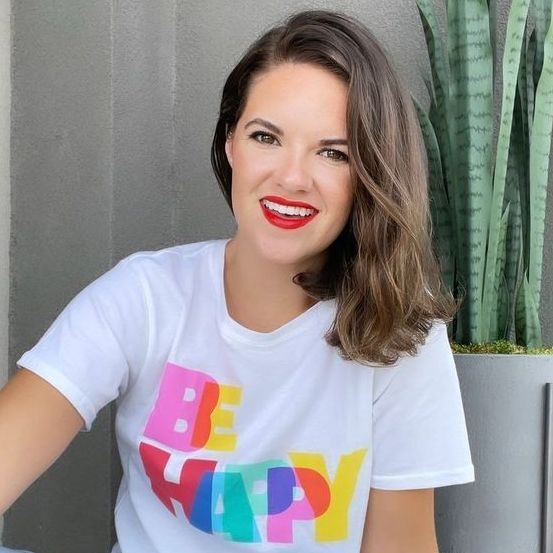
LISTEN, FOLLOW & REVIEW ON:
Apple Podcasts
Click to listen >>
Spotify
Click to listen >>
Audible
Click to listen >>
Google Play
Click to listen >>
Episode Links
- Connect with Keleigh on Instagram
- Follow Anchor Design Co. on Facebook
- Join the Build it Like a Business Community
- Get a FREE AnchorCard Digital Business Card
- Get done-for-you social media content
- Follow Molly on Instagram
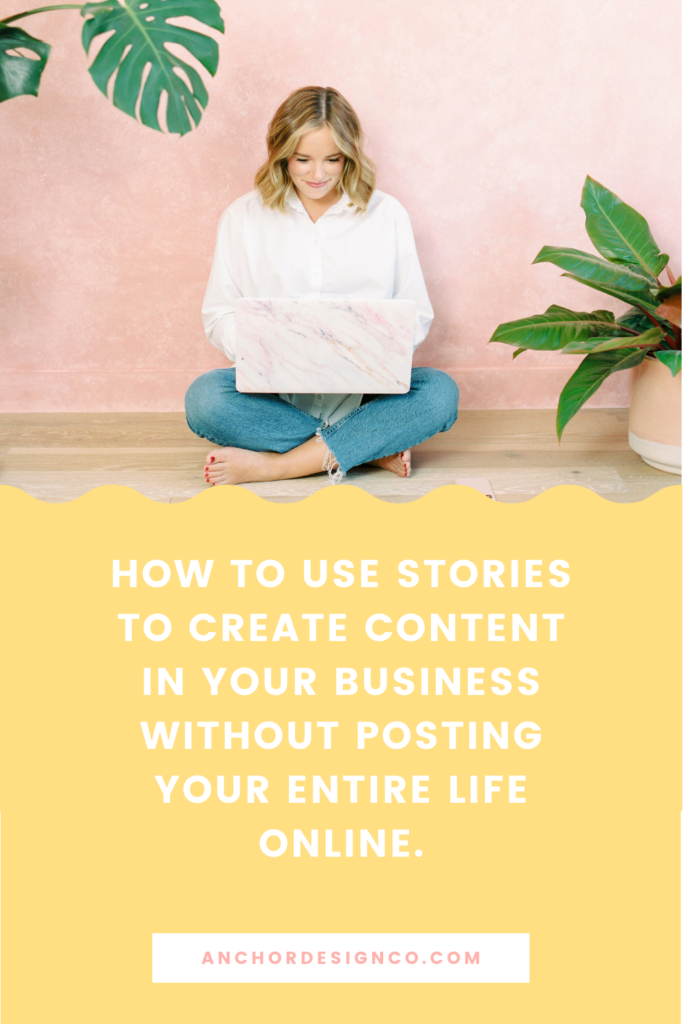
Keep the party going with recent episodes:
Search for a topic!
Find the support you need to grow your biz


